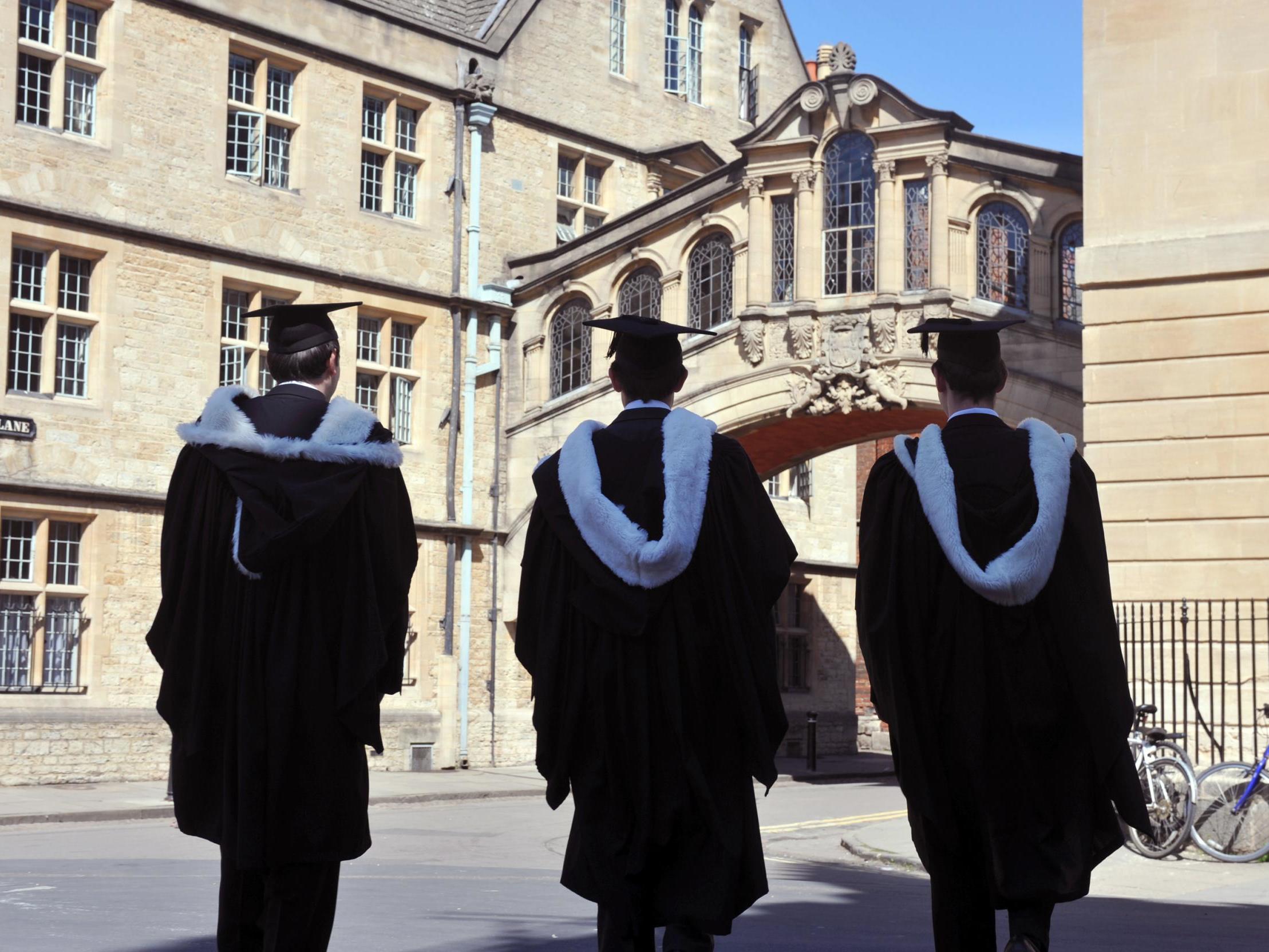Parents take on second jobs and sacrifice holidays to cover children’s university costs, report suggests
More than eight in 10 families financially support offspring while at university, survey finds

Your support helps us to tell the story
From reproductive rights to climate change to Big Tech, The Independent is on the ground when the story is developing. Whether it's investigating the financials of Elon Musk's pro-Trump PAC or producing our latest documentary, 'The A Word', which shines a light on the American women fighting for reproductive rights, we know how important it is to parse out the facts from the messaging.
At such a critical moment in US history, we need reporters on the ground. Your donation allows us to keep sending journalists to speak to both sides of the story.
The Independent is trusted by Americans across the entire political spectrum. And unlike many other quality news outlets, we choose not to lock Americans out of our reporting and analysis with paywalls. We believe quality journalism should be available to everyone, paid for by those who can afford it.
Your support makes all the difference.Parents are taking on second jobs, as well as sacrificing holidays and new cars, to cover their children’s university costs, according to new research.
More than a quarter of parents have had to, or are planning to, cut back on spending on home improvements, cars and holidays to financially support their child at university, the YouGov poll found.
Six per cent of parents said they have or will have to take on a second job to cover the costs of their child’s higher education course, according to the research from consumer group Which?.
The survey, of more than 800 parents of current and prospective students, found two in three use or will use their monthly income to cover the costs and more than a quarter dip into their savings.
More than eight in 10 (84 per cent) parents of current students said they were financially supporting their child at university and nearly half of those said the overall cost was more than they expected.
Their contributions averaged £360 a month, the poll found.
Expenses that parents of students were contributing towards included living costs, such as accommodation, bills and food (56 per cent), study materials (37 per cent), outings and hobbies (28 per cent) and tuition fees (10 per cent).
One parent with three children at university said: “All my earnings go into supporting my children, and we have gone without many things to support them.”
In a separate survey of nearly 4,000 students, carried out by Youthsite for Which?, around four in 10 (44 per cent) said they had spent more money on accommodation than they expected to.
The same proportion (43 per cent) said course expenses cost them more than they had anticipated.
Gareth Shaw, head of money at Which?, said: “Sending a child to university is an exciting milestone, but it is also a major financial commitment – so parents should be aware that they’re likely to have to find considerable sums to support their offspring beyond the headline costs for fees and accommodation.”
Justine Roberts, founder of Mumsnet, said: “Some parents tell us they have sacrificed holidays and car upgrades as well as their pension pots. While most parents do want to help their children, a retirement eating baked beans seems like a high price to pay.”
It comes after the National Union of Students (NUS) warned in March that working-class students are being forced to turn to loan sharks after being confronted with compulsory course materials and trips they have not budgeted for when they arrive at university.
Shakira Martin, then NUS president, said students were having to take on multiple jobs at a time to fund their education – and they were being forced to turn to sex work and payday loans.
In May, Theresa May said student fees should be slashed to £7,500 a year following a report for the government which warned the fear of high debt deters teenagers from poorer backgrounds.
The study, ordered by the PM last year, also called for maintenance grants to be restored for low-income students – after they were controversially axed by George Osborne four years ago.
A Universities UK (UUK) spokesperson said: “Institutions and government must be as transparent as possible when detailing the costs and benefits of attending university. While the costs of higher education have not deterred young people from attending, students are concerned about meeting their living costs while studying and this survey adds to existing evidence showing it is a bigger concern than the level of tuition fees for students.
“Universities offer a range of financial support, and we would encourage those under financial pressure to contact student support services at their institution if they need help.”
Join our commenting forum
Join thought-provoking conversations, follow other Independent readers and see their replies
Comments